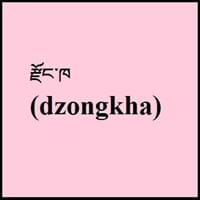Dzongkha vs Portuguese
- Standard romanization of the Dzongkha language is Roman Dzongkha.
- Portuguese language has absorbed many words from French, Italian, Arabic and also from indigenous South American and African languages.
- The first written document in Portuguese language was found in the 12th century.
Dzongkha and Portuguese Language History
Comparison of Dzongkha vs Portuguese language history gives us differences between origin of Dzongkha and Portuguese language. History of Dzongkha language states that this language originated in 17th Century whereas history of Portuguese language states that this language originated in 3rd Century. Family of the language also forms a part of history of that language. More on language families of these languages can be found out on Dzongkha and Portuguese Language History.
Dzongkha and Portuguese Greetings
People around the world use different languages to interact with each other. Even if we cannot communicate fluently in any language, it will always be beneficial to know about some of the common greetings or phrases from that language. This is where Dzongkha and Portuguese greetings helps you to understand basic phrases in Dzongkha and Portuguese language. Dzongkha word for "Hello" is Kuzoozangpo La or Portuguese word for "Thank You" is obrigado. Find more of such common Dzongkha Greetings and Portuguese Greetings. These greetings will help you to be more confident when conversing with natives that speak these languages.
Dzongkha vs Portuguese Difficulty
The Dzongkha vs Portuguese difficulty level basically depends on the number of Dzongkha Alphabets and Portuguese Alphabets. Also the number of vowels and consonants in the language plays an important role in deciding the difficulty level of that language. The important points to be considered when we compare Dzongkha and Portuguese are the origin, speaking countries, language family, different greetings, speaking population of these languages. Want to know in Dzongkha and Portuguese, which language is harder to learn? Time required to learn Dzongkha is Not Available while to learn Portuguese time required is 24 weeks.





